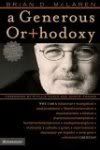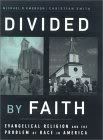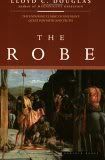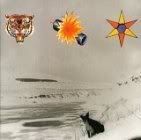 Knowing little about the Anabaptist tradition outside of the fact that Amish and Mennonite folks belong to it, I found chapter 13, "Why I Am (Ana)baptist/Anglican", interesting. On page 208 McLaren channels Wendell Berry (who he recommends in a footnote, as would I) in saying:
Knowing little about the Anabaptist tradition outside of the fact that Amish and Mennonite folks belong to it, I found chapter 13, "Why I Am (Ana)baptist/Anglican", interesting. On page 208 McLaren channels Wendell Berry (who he recommends in a footnote, as would I) in saying:
They realize that community involves proximity, and that proximity involves land, and that our ties to one another can never be separated form our ties to the land, the watershed, the local economy in which we live. They have an instinct about the deep ties between community and sexuality, community and freedom, community and economics.
To me this holistic and simple way of living is a fabulous ideal, and one that we've largely lost as our community becomes increasingly global and our ties to nature and each other are getting frayed (sometimes severed). I don't think that this way of life necessitates isolation from culture, though. It's easier to look backwards and romantically reminisce about the 'good old days' than to use our creativity to imagine new ways of living in our current context. A task that I don't think Christians (myself definitely included) have put enough energy into. Although there are a couple of really great books on the subject out there, notably Michael Schut's Simpler Living, Compassionate Life.
I also share McLaren's appreciation for the beauty of liturgy in the Anglican church. I've never attended a church with a more traditional liturgy (excepting they Catholic masses I attended as a child on Easter Sunday with my Granny), and I feel like I've really missed out on something. (Dad - if you read this, what were some of your experiences growing up Catholic and then now going to a non-denominational church? What's your take on the value of liturgy?)
I thought Chapter 14, "Why I Am Methodist", had some good things to say about spiritual formation, and the importance of forming groups and communities that can encourage and disciple each other, imaging the 'mountain ascent' rather than the all too common "redemption and lift" (p. 217) that results in a hierarchy that leaves people stranded, frustrated, and stagnant. One of my frustrations in general with this book (and this chapter) is that he gives a brief overview of the history of a tradition and pulls out its strengths (which is great), but doesn't really talk about the beliefs of the tradition itself. I guess it makes sense as he obviously doesn't want to focus on doctrine, and I know the purpose of the book isn't to serve as a primer on denominations, but it would be nice to get a better handle on what he's claiming he is. It just seems incomplete to me.
"Why I Am catholic", chapter 15, has some helpful things to say. I agree with his sad statement that "you can only know the unity of the church by believing it, not by seeing it", and I, with him, hope that "the more we believe in and perceive that unity, the easier it will be to grow beyond the disunity." (p. 222) But I still quibble with his constant assertions that 'right' is completely trumped by 'good' (see page 223). On the one hand, if we are 'right' we will be 'good' - right relationship based on truth lends itself to right action. But I feel as though he's lessening the importance of Truth - the referent for the action. I think that's a bad understanding of Christ. What do y'all think? Am I misreading him here?
His critique of some of the 'heartfelt' prayers of Protestantism (p. 226) made me laugh because I definitely recognize it. It's made me prize the beauty of my Book of Common Prayer so much! What do y'all think of written prayers vs. spontaneous ones?
As always, there is much that I left out. What did y'all think? Anything you found helpful, agreed with, disagreed with? The Mary issue is a huge one (see p. 228) - what are your thoughts? Or the idea of sacrament (April, I know you have something to say on this!)? I really hope to hear from y'all below!










4 comments:
Jasie,
I don’t go to a non-denominational church. I go to a Christian Bible Church. Denominations are just out there to confuse people and the word Christian is misused and abused so much that you can never accept one’s proclamation of being one on face value.
Growing up in a small rural Catholic church was a large part of my life in my developmental years. From the time I was eleven until I was fifteen or sixteen I served as an altar boy. I served in many weddings and funerals; I especially liked that part, not because I felt a closer proximity to God but because generally they tipped us a few dollars. Here I also got my first taste of wine, Ronnie and tested it once after Mass (maybe twice). I also learned to speak Latin, Mass was in Latin so we learned the Latin responses to all the priest’s proclamations. I didn’t understand what I heard or what I was saying.
What I liked about the Catholic faith was its traditions, ceremonies, mysticism … As I matured, married, and had children it became apparent to me that if wanted to retain the important things in my life, that I needed to re-connect my spiritual life. I discovered that those traditions, ceremonies, mysticism were not required to have a relationship with Christ, for that matter all the Catholic rules for many is a hindrance to that relationship. Eating a greasy hamburger (sin) or fried fish (OK) on Fridays, what’s the diff’?
I have more appreciation now for the Catholic liturgies as a more mature Christian than I ever did as a youth. I believe that Catholics that understand Jesus and accept Him as there Lord and Savior are just as Christian as anyone else with that understanding.
Stations of the Cross, High Mass, holy days of obligation, and so many things symbolic of your faith that are traditional in the Catholic Church are uplifting, but nothing replaces being a well grounded Christian.
Love Ya,
DAD
What you said about spontaneous prayers vs. written ones got me thinking. In my experience they are equal in importance. I think we should feel comfortable talking with God and walking with him just as Adam did. But I also think that reading written prayers is important because we are praying the same words that thousands of Christians before have prayed. I think there is something special and maybe mystical about saying the "Our Father". I like to think that when I say an "our father" I am saying it for myself and also in unison with other Christians of all traditions and all times. Does that make sense?
Dad-
Thanks for your thoughts! I totally agree that the rituals (while beautiful) are a poor substitute for being a "well grounded Christian". But do you miss them? Are there aspects of the liturgy that you would like to see reinstated in your worship now? Would they help, hinder, or neither?
Julian-
I like what you said about written prayers tying you in to a larger tradition and history. I think it's important to keep in mind the richness of the traditions we've built on.
In Letters To Malcolm, C.S. Lewis talks about "ready-made", spontaneous and prayers without words at all. He says: "If they are our own words they will soon, by unavoidable repetition, harden into a formula. If they are someone else's, we shall continually pour into them our own meaning." Also, in talking about non-verbal prayer (which he says is the best kind), and it seems to apply to prayer in general, is that an easy mistake is to fall into "what Pascal.. calls 'Error of Stoicism': Thinking we can do always what we can do sometimes." I find that helpful in that there are times when prayer seems to flow easily, but there are also times when I am almost unable to pray. In those times more than any other, I find it helpful to fall on the words of my Christian forefathers. There is truth, beauty, and aid in reminding me of "what things I ought to ask".
Jasie,
Just a few thoughts on these chapters:
I thought about our little "commune" when I read the quote you cited about community,living in proximity,ties to the land and each other,etc. Sounds so nice,doesn't it?
I did enjoy reading about the meaning of the word "anabaptist "and how and why that movement emerged-all new to me- and certainly couldn't argue with most of their philosophy though you can see that it could definitely "work against creating a truly open, accepting community". Once again, that dynamic tension-how to be in the world but not of the world. I think there's a lot of room for discussion in his statement on P.231:"As outsiders, they learned to function at the margins,and they learned that the gospel functions there just as well of better than at the centers of power,prestige,wealth,and control."I would tend to agree more than disagree but there are definitely things to be said about using your wealth and power and control and prestige for the cause of Christ and making his kingdom come on earth as it is in heaven.
Loved the Methodist picture ot the mountain ascent with the disciple reaching one hand forward to find the hand of the mentor a few steps ahead of him while at the same time reaching back to help the one behind him. I think that is what God so intended and would love to see and I think that is a strong movement in the churdh today that is gaining momentum with small groups, accountability partner,etc. The "Church" is certainly encouraging it, but people (i.e., the church) are a little slow in getting on the bandwagon probably for a variety of reasons but I inmagine the main ones are time constraints and not wanting to be vulnerable or expose themselves or their needs. (Maybe we need to work on the trust issue first!)
When I first read on page 246 that " systematic theologies or biblical knowledge simply don't produce personal transformation" I was sort of shocked but for most of us that's probably true-we need interaction and other peoples thoughts and experiences to flesh out the truth and help us apply it to our own situations. Is that what he meant?
You asked our thoughts on the celebration of Mary in the Catholic Church,Jasie. I do think we should honor her in her role as the person chosen by God to be the mother of our Savior. That she was highly favored ,that the Lord was with her, that she was blessed among women,that she was able to say"alet it be to me accoding to your word" when she got the message from the angel. But it is pure human tradition to tranform her into a sinless diety to be worshipped on practically on equal level with Christ. Totally extra-Biblical. I'd like to talk to Kay or Maureen,though, and see how much that is stressed or included today in their services or studies. I suspect it's very down-played nowadays.
One other thought but I don't have time to post it -back to you later!
Love you,Jasie!
Mom
Post a Comment